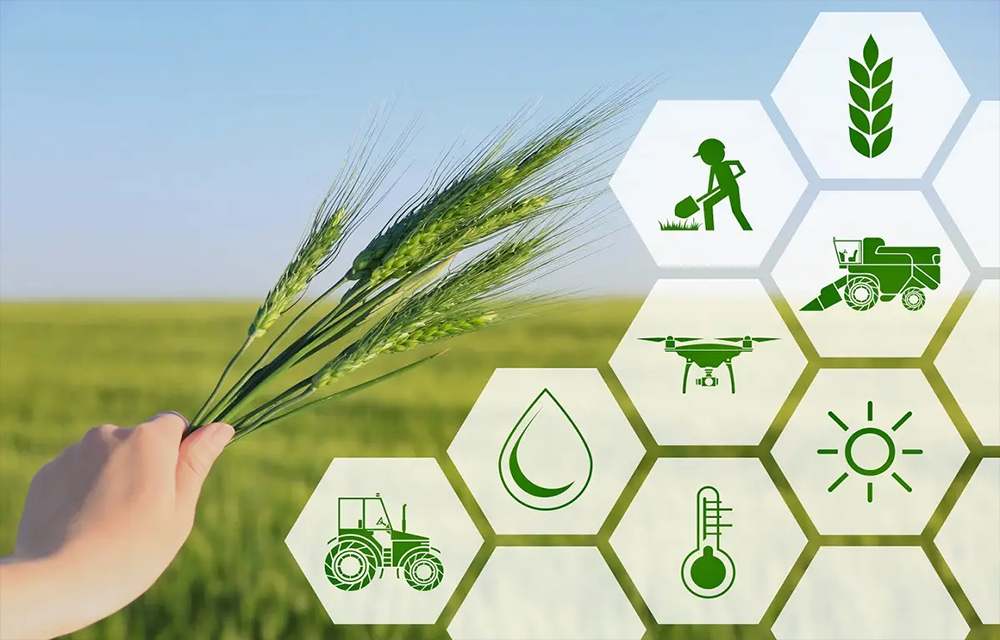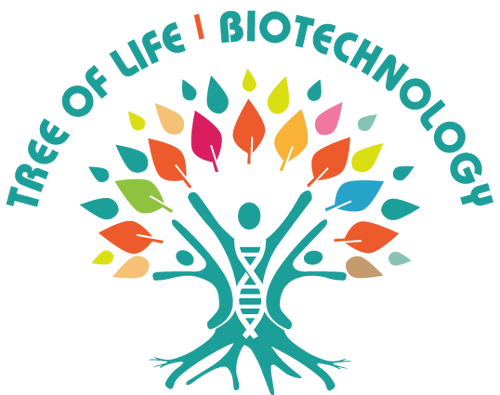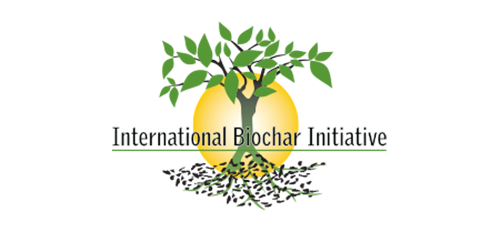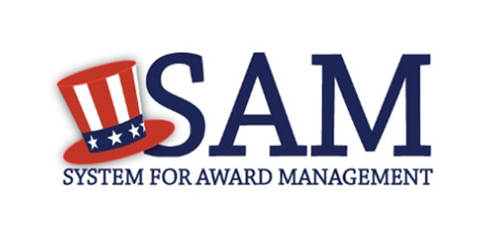From Seed to Sustainability - Enhancing Crop Resilience & Farmer Livelihoods using Blockchain Tech.

Introduction
In an era grappling with climate adversities, burgeoning population figures, & escalating food security apprehensions, the global agricultural landscape confronts unprecedented challenges. The urgency for sustainable practices in agriculture - ones that bolster food production while conserving the environment & bolstering economic viability - has never been more palpable. Amidst these exigencies, technology emerges as a beacon of hope, with blockchain technology, in particular, presenting groundbreaking prospects.
Traditionally associated with digital currencies, blockchain technology’s foray into agriculture heralds a paradigm shift. This decentralized ledger system, renowned for its robustness, transparency, & security, is poised to address critical agricultural bottlenecks. The premise is revolutionary - leveraging blockchain to enhance agricultural resilience, fortify food traceability, & most crucially, uplift farmer livelihoods globally.
Understanding the Basics - Agronomy, Crop Science, & Blockchain
Agronomy & crop science form the bedrock of food production. These disciplines encompass an array of practices, systems, & tools designed to augment crop yield quality & quantity, soil management, & environmental conservation. They are pivotal in steering the world towards food security & sustainability, especially in the face of relentless climate change.
In parallel, blockchain technology is carving its niche in this domain. At its core, blockchain is a decentralized database, logging transactions across many computers, ensuring security, transparency, & immutability. Every “block” contains a cryptographic hash of the previous block, a timestamp, & transaction data, making it inherently resistant to data modification.
Blockchain technologies can track all types of information about plants, such as seed quality, and crop growth, and even generate a record of the journey of the plant after it leaves the farm. Blockchain for food stores a complete history of data on a product journey from its origin through manufacturing, storage, transportation, and quality control processes to end consumers. Once recorded, food provenance data becomes immutable and can be accessed at any point-integrating blockchain into agriculture paves the way for a more transparent & equitable system. For farmers, blockchain’s application extends beyond mere transactional transparency. It offers a verifiable, secure, & permanent method for recording data relating to crop cycles, input usage, & harvest yields. This data-centric approach stands to revolutionize traditional farming methods, contributing significantly to predictive analysis for weather patterns & pest control, & ensuring traceability from seed to table.
The Plight of the Modern Farmer - Challenges Faced in Agriculture
Today’s farmers find themselves at the mercy of numerous adversities. Climate change looms large, manifesting in erratic weather patterns, severe droughts, & increased pestilence, thereby impacting crop health & harvests. Financial woes compound with these environmental challenges, as farmers often struggle to secure fair compensation for their produce, tethered to the volatility of market prices.
Moreover, the lack of access to a transparent marketplace hinders farmers from achieving the best value for their harvest, while global supply chain complexities often dilute profit margins. These challenges, coupled with the pressure to meet the food demand of a rapidly growing population, underlines the dire need for a system that safeguards farmer interests & promotes sustainable practices.
Blockchain to the Rescue - Solutions in Agricultural Practices
In the maze of agricultural complexities, blockchain emerges as a genuine game-changer. Its application in this sector is multifaceted & transformative, addressing some of the most entrenched challenges farmers face.
One of the paramount features of blockchain - supply chain transparency & traceability - promises to overhaul current dynamics. From the moment seeds are planted, to harvesting, processing & distribution, every step can be recorded & verified. This level of transparency ensures food safety, reduces fraud & errors, and enables consumers to trace the product's journey from farm to fork. For farmers, this translates into an enhanced trust, potentially commanding better prices for their produce.
Moreover, blockchain introduces unprecedented fairness in trade transactions. Farmers, often at the mercy of delayed payments, can leverage blockchain's smart contracts. These self-executing contracts with explicit terms and conditions ensure that farmers receive timely and fair payments, directly impacting their livelihoods and eliminating the uncertainties that have long shadowed agricultural trading.
Data is the new gold, and in agriculture, it's no different. Blockchain facilitates superior data management, allowing farmers to make informed decisions. By accurately recording data on crop cycles, weather conditions, and pest activities, blockchain enables predictive modelling, helping farmers to plan effectively and mitigate potential risks. This data management extends to a transparent marketplace for crops, where demand and supply can be monitored in real-time, ensuring market efficiency.
Furthermore, the verification of sustainable farming practices becomes streamlined with blockchain. Consumers today are more conscious than ever about their food's origin and its environmental impact. Blockchain allows for the certification of organic or sustainable methods, providing an indisputable assurance to consumers willing to pay premiums for such produce.
Real-world Success Stories - Blockchain in Action
The integration of blockchain technology within the agricultural sector marks a modern renaissance that has already begun to show promising results across various global initiatives. These success stories underscore the practical viability of blockchain, moving beyond theoretical potential to tangible benefits for farmers, distributors & consumers alike.
1. AgriDigital's Commodity Management
One of the standout successes in the implementation of blockchain within agriculture is witnessed in the work of AgriDigital. This Australian company executed one of the world’s first blockchain-based agricultural commodity transactions by successfully facilitating the real-time sale of 23.46 tons of oats. With blockchain, AgriDigital solved critical issues of the traditional sale process, such as delayed payments & title transfer.
Farmers received payment instantly at the time of delivery, a significant improvement from the typical month-long wait. Additionally, the blockchain system provided complete transparency, allowing all parties to access real-time data on the commodity's quality, quantity & chain of custody.
2. IBM Food Trust's Supply Chain Transparency
IBM Food Trust has emerged as a key player in employing blockchain for food traceability, ensuring fresh, ethically-sourced, and high-quality produce. In collaboration with major brands like Walmart and Nestlé, IBM's blockchain system meticulously tracks the journey of products from farm to store shelves.
One notable example is the tracking of mango shipments. Walmart used Food Trust to reduce the time taken to trace their mangoes' source from 7 days to mere 2.2 seconds. This level of efficiency is not just about speed but also impacts food safety, recall procedures & consumer confidence, knowing the origin of their food.
3. The Coffee Chain - Farmer’s Fair Compensation
Blockchain's impact is perhaps most heartfelt in initiatives like the "Thank God It’s Fair Trade" (TGIFT) project, where blockchain is used to ensure fair compensation for coffee farmers in Ethiopia. Traditionally, these farmers have received only a fraction of their crop’s final retail value. Through blockchain's transparent & immutable ledger, TGIFT documents the journey of coffee beans from Ethiopia to international retail outlets.
Farmers are registered on the blockchain, and QR codes representing a digital identity for their produce are generated. Consumers can scan these codes to view the product’s journey & verify fair trade certification. Most importantly, this transparency ensures that a significant portion of the profits returns to the Ethiopian farming communities, contributing to local development projects.
4. Project Provenance - Fishing Sustainability
Project Provenance Ltd, a UK-based company, demonstrated blockchain's power in ensuring sustainable fishing practices. Indonesian fishermen used mobile platforms to register their catch on the blockchain. This action recorded data on the catch, including time, date, and fishing method, ensuring the fish were caught legally & sustainably.
For consumers, restaurants, and retailers, this information is crucial, providing the confidence that the fish they purchase adheres to international standards for sustainability & ethical practices. For fishermen, this blockchain initiative opened up new market opportunities, rewarding their sustainable practices.
These real-world applications of blockchain in agriculture illustrate a future where technology serves as the cornerstone of transparent, efficient & equitable agricultural practices. Each case study reflects a scenario where the challenges of traditional methods are addressed with innovative solutions, highlighting blockchain's potential to revolutionize aspects of traceability, payment processes, fair trade, and sustainable practices. The success of these initiatives lies in collaborative efforts, technological empowerment & a shared vision to foster a more just and sustainable global agricultural landscape
Economic Implications - Blockchain Empowering Farmers Financially
The economic landscape for most farmers is fraught with instability & unpredictability, often exacerbated by middlemen, lack of direct market access, and financial services. Herein lies blockchain's potential to significantly alter the financial contours of farming.
By utilizing smart contracts, farmers can bypass many of the traditional hurdles in receiving fair compensation. These automated contracts ensure that once supply conditions are met, payments are promptly processed, reducing the financial strain on farmers.
In regions where banking is a challenge, blockchain paves the way for financial inclusivity. Farmers can engage in transactions without the need for traditional banking services. This feature is particularly transformative for smallholder farmers in remote areas, often sidelined by conventional financial institutions.
The concept of tokenisation introduced by blockchain also presents innovative financing opportunities. Farmers can tokenise their assets, allowing them to raise capital by selling a portion of their future yield at a present rate. This approach not only injects much-needed funds into their operations but also allows investors to participate directly in agricultural financing.
Blockchain in Agriculture Market, By Application
-
Governance, Risk and Compliance Management
-
Payment & Settlement
-
Product Traceability, Tracking & Visibility
-
Smart Contracts
Smart Contracts on the blockchain can automate transactions, payments & other processes, reducing the need for intermediaries and cutting transaction costs. For example, blockchain can enable farmers to sell their crops directly to consumers or retailers, bypassing traditional middlemen & reducing costs. Based on Application, the market is bifurcated into Governance, Risk & Compliance Management, Payment & Settlement, Product Traceability
The Road Ahead - Future of Blockchain in Agriculture
Blockchain's journey in agriculture is just beginning. The technology's potential to instill transparency, fairness, and efficiency speaks directly to the sector's most pressing concerns. However, its adoption is not without challenges. Issues such as regulatory frameworks, technological infrastructure, and digital literacy among farmers stand as considerable obstacles.
Blockchain in Agriculture Market size was valued at USD 557.35 Million in 2021 and is projected to reach USD 2,555.72 Million by 2030, growing at a CAGR of 46.29% from 2023 to 2030.
The adoption of blockchain technology in agriculture will save people working in the sector time, money, and even their lives. The agriculture sector as well as farmers will profit from the use of blockchain technology,
Experts advocate for a collaborative approach, where policymakers, tech providers & the farming community work in unison to navigate these challenges. Education and training initiatives, robust policy guidelines & continued technological innovation will be central to blockchain's sustainable integration into agriculture.
As we stand on the cusp of this technological revolution in agriculture, the promise of a system that supports farmers, reassures consumers & promotes environmental sustainability is profoundly compelling. The road ahead for blockchain in agriculture is fraught with challenges, but the potential rewards for farmers, consumers & our planet are undeniable.
Conclusion
In retrospect, the advent of blockchain in agriculture marks a critical juncture in the sector's evolution. From enhancing transparency & traceability to empowering farmers financially & economically, blockchain technology holds the key to resolving many of the sector's longstanding challenges. While hurdles remain, particularly in terms of widespread adoption & regulation, the collaborative efforts of various stakeholders promise a brighter, more sustainable future.
The journey from seed to sustainability, thus, is not a solitary one. It requires the collective effort of agronomists, technologists, policymakers & most importantly, the farmers themselves. As we tread this path, the convergence of agriculture with blockchain technology heralds a new era – one where technology meets tradition to create a world where farming is both sustainable & rewarding.





